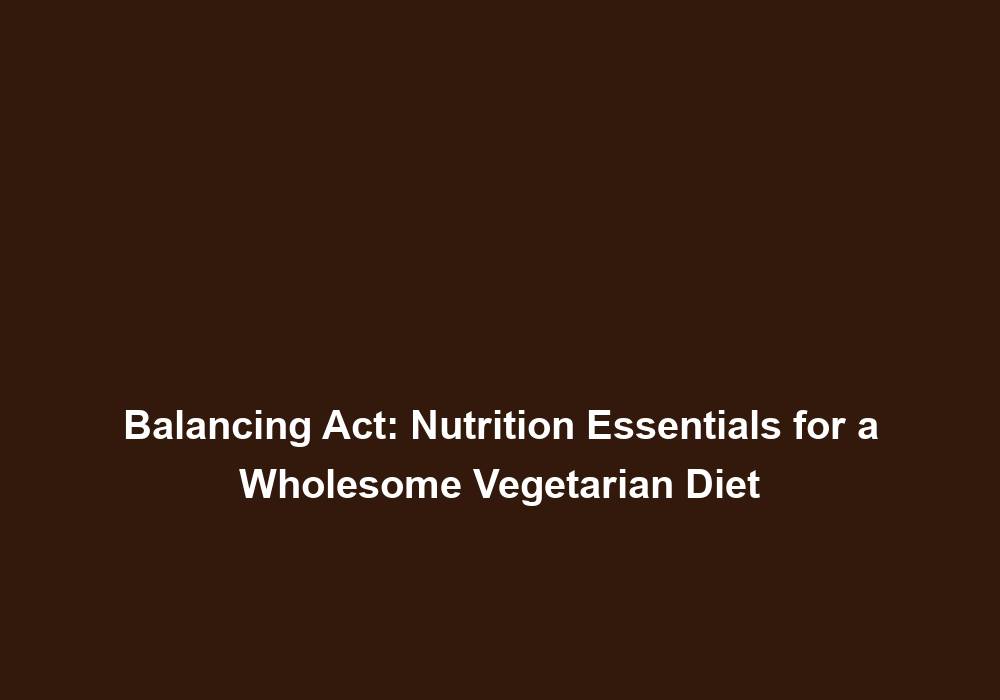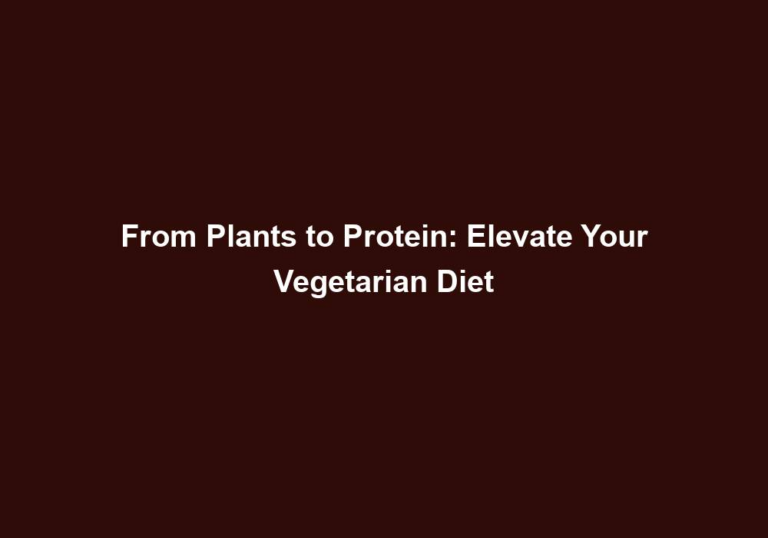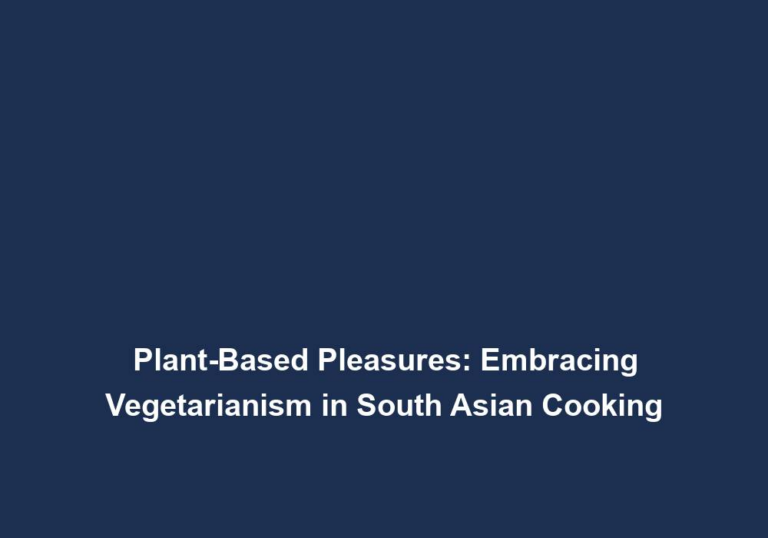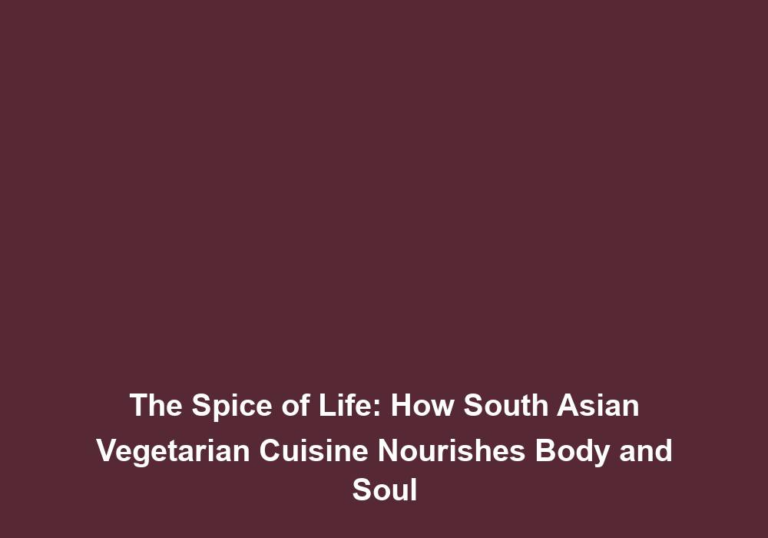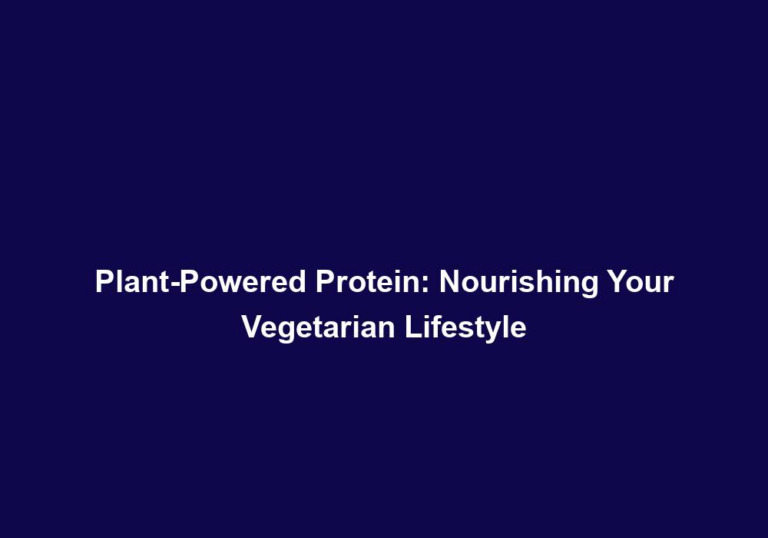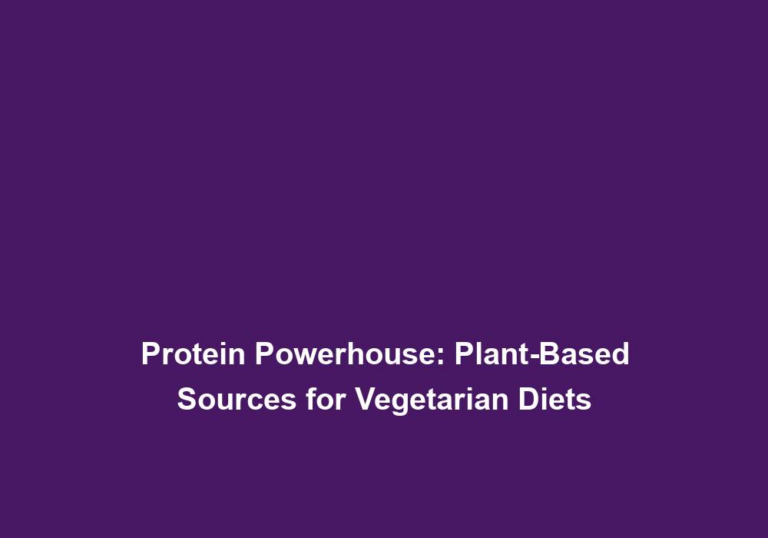Balancing Act: Nutrition Essentials for a Wholesome Vegetarian Diet
In recent years, the popularity of vegetarian diets has been on the rise. Whether due to ethical reasons, environmental concerns, or health benefits, many individuals are choosing to adopt a vegetarian lifestyle. However, with the elimination of meat and fish from one’s diet, it becomes crucial to ensure that the body receives all the necessary nutrients for optimal health. This article will guide you through the essential nutrition requirements for a wholesome vegetarian diet, helping you maintain a well-balanced and nourishing lifestyle.
Understanding the Basics of a Vegetarian Diet
Before diving into the specifics, it’s essential to understand the various types of vegetarian diets. The most common types include:
-
Lacto-ovo vegetarian: This diet includes plant-based foods, dairy products, and eggs while excluding meat, poultry, and fish. This type of vegetarian diet provides a wide range of nutrients, including protein, calcium, iron, and vitamin B12. By incorporating a variety of plant-based foods, dairy products, and eggs, lacto-ovo vegetarians can meet their nutritional needs effectively.
-
Lacto-vegetarian: Similar to the lacto-ovo vegetarian diet, but without eggs. Lacto-vegetarians can obtain essential nutrients from plant-based foods and dairy products. It’s important for lacto-vegetarians to ensure they are consuming adequate protein, iron, and vitamin B12 from plant-based sources and dairy products.
-
Ovo-vegetarian: Similar to the lacto-ovo vegetarian diet, but without dairy products. Ovo-vegetarians rely on plant-based foods and eggs for their nutrient intake. They need to pay extra attention to obtaining calcium, iron, and vitamin B12 from plant-based sources and eggs.
-
Vegan: Vegans avoid all animal-derived products, including meat, dairy, eggs, and even honey. This type of vegetarian diet requires careful planning to ensure all essential nutrients are obtained. Vegans need to focus on sources of protein, iron, calcium, vitamin B12, and omega-3 fatty acids from plant-based foods and fortified products.
Regardless of which type of vegetarian diet you follow, it’s essential to pay attention to key nutrients to maintain a healthy and balanced lifestyle.
Key Nutrients for a Wholesome Vegetarian Diet
1. Protein
Protein is an essential macronutrient required for the growth, repair, and maintenance of body tissues. While animal-based products are often considered high-quality protein sources, it is possible to meet your protein needs on a vegetarian diet. Excellent plant-based protein sources include:
- Legumes: Lentils, chickpeas, black beans, and soybeans are all rich in protein. They are also versatile ingredients that can be used in a variety of dishes such as soups, stews, salads, and curries.
- Quinoa: A complete protein source, containing all essential amino acids. Quinoa can be used as a base for salads, stir-fries, or enjoyed as a side dish.
- Tofu and tempeh: Made from soybeans, these products are packed with protein. They can be used as a meat substitute in various recipes, such as stir-fries, sandwiches, and burgers.
- Nuts and seeds: Almonds, chia seeds, hemp seeds, and pumpkin seeds are all great sources of protein. They can be enjoyed as a snack, added to smoothies, or used as toppings for salads and oatmeal.
Including a variety of these plant-based protein sources in your meals will ensure that you meet your daily protein requirements.
2. Iron
Iron is essential for transporting oxygen throughout the body and maintaining overall health. While meat is an excellent source of heme iron, vegetarians can obtain sufficient iron through plant-based sources such as:
- Dark leafy greens: Spinach, kale, and Swiss chard are rich in iron. They can be incorporated into salads, stir-fries, or sautéed as a side dish.
- Legumes: Lentils, kidney beans, and chickpeas not only provide protein but also iron. They can be used in soups, stews, and curries.
- Fortified cereals and bread: Look for products fortified with iron to increase your intake. These can be enjoyed as part of a balanced breakfast or used to make sandwiches.
- Pairing iron-rich foods with vitamin C sources, such as citrus fruits or bell peppers, can enhance iron absorption. For example, adding lemon juice to a spinach salad or including bell peppers in a lentil curry can help optimize iron absorption.
Ensuring a variety of iron-rich plant-based foods in your diet and combining them with vitamin C sources will help maintain adequate iron levels.
3. Calcium
Calcium is crucial for maintaining healthy bones and teeth, as well as supporting muscle and nerve function. Although dairy products are the most well-known sources of calcium, vegetarians can obtain this mineral from various plant-based sources, including:
- Dairy alternatives: Fortified plant-based milk, such as soy or almond milk, often contain calcium. They can be used in smoothies, poured over cereal, or used in cooking and baking.
- Leafy greens: Broccoli, bok choy, and kale are all excellent sources of calcium. They can be steamed, stir-fried, or added to salads and soups.
- Tofu: Some tofu varieties are fortified with calcium. It can be used in stir-fries, curries, or grilled and enjoyed as a main dish.
- Sesame seeds: These tiny seeds are rich in calcium and can be sprinkled on salads or incorporated into recipes. They can also be ground into tahini, a paste commonly used in Mediterranean cuisine.
Including these plant-based calcium sources in your meals will help meet your daily calcium requirements.
4. Vitamin B12
Vitamin B12 is primarily found in animal-based products, making it a vital nutrient for vegetarians to be mindful of. As a result, it may be necessary to consider supplementation or consume fortified foods. Some plant-based sources of vitamin B12 include:
- Fortified plant-based milk: Many brands fortify their products with vitamin B12. These can be enjoyed on their own or used in recipes that call for milk.
- Nutritional yeast: A popular ingredient among vegetarians, nutritional yeast is often fortified with B12. It can be used as a cheesy flavoring in various dishes, such as pasta, soups, and sauces.
- Plant-based meat alternatives: Some meat substitutes are also fortified with this essential vitamin. These can be used in sandwiches, wraps, stir-fries, or enjoyed as a main dish.
By incorporating these plant-based sources of vitamin B12 into your diet, you can help meet your daily requirements.
5. Omega-3 Fatty Acids
Omega-3 fatty acids play a crucial role in heart health and brain function. While fish is the most well-known source of these beneficial fats, vegetarians can obtain omega-3s from:
- Chia seeds and flaxseeds: These seeds are rich in alpha-linolenic acid (ALA), a type of omega-3 fatty acid. They can be added to smoothies, oatmeal, baked goods, or used as an egg substitute in recipes.
- Walnuts: A handful of walnuts can provide a good dose of omega-3s. They can be enjoyed as a snack, added to salads, or used in baking.
- Algal oil: Derived from algae, this oil is a vegan source of omega-3s and can be found in supplement form. It can be used as a cooking oil or taken as a supplement to ensure adequate intake.
Including these plant-based sources of omega-3 fatty acids in your diet will help support your heart and brain health.
Meal Planning Tips for a Well-Balanced Vegetarian Diet
To ensure you’re meeting all your nutritional needs, here are some practical meal planning tips specifically for a vegetarian lifestyle:
-
Include a variety of plant-based foods: By incorporating a wide range of fruits, vegetables, whole grains, legumes, nuts, and seeds into your diet, you can ensure a diverse nutrient intake. Aim to include different colored fruits and vegetables as they provide various vitamins, minerals, and antioxidants.
-
Pay attention to portion sizes: While vegetarian meals tend to be lower in calories, portion control is still crucial to maintain a healthy weight and balance your nutrient intake. Use measuring cups or a food scale to accurately portion out your meals and snacks.
-
Experiment with new recipes and cooking techniques: Embrace the opportunity to explore vegetarian cuisine, trying out new recipes and cooking techniques to keep your meals exciting and delicious. Look for vegetarian cookbooks, websites, or social media accounts for inspiration.
-
Consider supplementation if needed: To address potential nutrient gaps, especially for vitamin B12, it’s advisable to consult with a healthcare professional who can guide you on appropriate supplementation. They can assess your individual needs and recommend specific supplements if necessary.
-
Stay hydrated: Drinking an adequate amount of water throughout the day is essential for overall health and digestion. Aim to drink at least 8 cups (64 ounces) of water daily, or more if you are physically active or in a hot climate.
By following these guidelines, you can ensure that your vegetarian diet is both balanced and nourishing, supporting your overall health and well-being.
Remember, a wholesome vegetarian diet requires proper planning and attention to ensure all essential nutrients are included. By incorporating a wide variety of plant-based foods and considering potential supplementation, you can enjoy the benefits of a vegetarian lifestyle while maintaining optimal nutrition.

